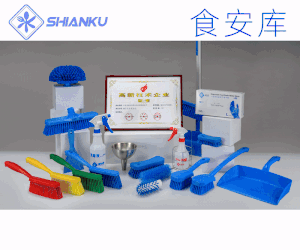食品伙伴網(wǎng)訊 2022年1月12日,歐盟食品安全局就食品酶凝乳酶、胃蛋白酶和胃亞蛋白酶(chymosin,pepsin and gastricsin)的安全性評(píng)價(jià)發(fā)布意見。
據(jù)了解,這種食品酶來自哺乳山羊的皺胃,旨在用于奶酪生產(chǎn)的牛奶加工中。
經(jīng)過評(píng)估,專家小組認(rèn)為,在預(yù)期的使用條件下,不能排除通過飲食接觸引起的過敏性致敏和誘發(fā)反應(yīng)的風(fēng)險(xiǎn),但這種情況發(fā)生的可能性很低。根據(jù)所提供的數(shù)據(jù),小組得出結(jié)論,該食品酶在預(yù)期的使用條件下不會(huì)引起安全問題。部分原文報(bào)道如下:
The food enzyme containing chymosin (EC 3.4.23.4), pepsin (EC 3.4.23.1) and gastricsin (EC 3.4.23.3) is prepared from the abomasum of suckling goats by Consejo Regulador de la Denominación de Origen Queso Palmero and Consejo Regulador de la Denominación de Origen Queso Majorero. The food enzyme is intended to be used in milk processing for cheese production. As no concerns arise from the animal source of the food enzyme, from its manufacture, and based on the history of safe use and consumption, the Panel considered that toxicological data were not required and no exposure assessment was necessary. Similarity of the amino acid sequences of the three proteins (chymosin, pepsin and gastricsin) to those of known allergens was searched and one match was found. The Panel considered that, under the intended conditions of use, the risk of allergic sensitisation and elicitation reactions by dietary exposure cannot be excluded, but the likelihood is considered to be low. based on the data provided, the Panel concludes that this food enzyme does not give rise to safety concerns under the intended conditions of use.
本文由食品伙伴網(wǎng)食品資訊中心編輯,供網(wǎng)友參考,有任何疑問,請(qǐng)聯(lián)系news@foodmate.net。
相關(guān)政策解讀











 地區(qū):
地區(qū):






 魯公網(wǎng)安備 37060202000128號(hào)
魯公網(wǎng)安備 37060202000128號(hào)



